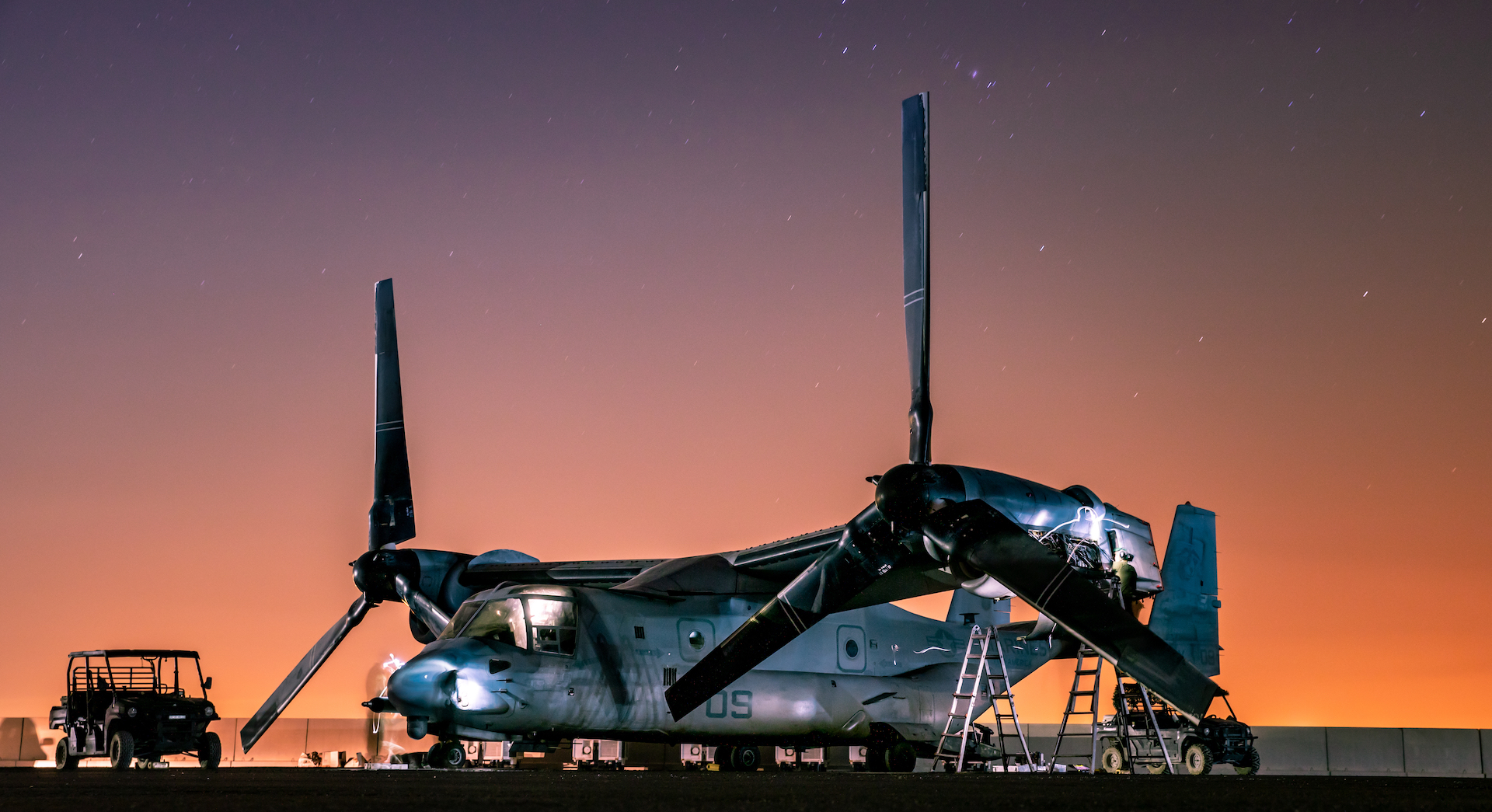
It will be a year until the U.S. military’s V-22 Ospreys are allowed to carry out their full range of operations. The nearly 400 Ospreys used by several military branches will continue to operate with restrictions and limitations until root causes behind several fatal crashes are resolved, the head of U.S. Naval Air Systems Command announced this past week.
Vice Adm. Carl Chebi, leader of that command, confirmed that restrictions on the V-22 will remain in place until mid-2025. He discussed the restrictions and the ongoing investigation into V-22 mishaps while testifying before the House Oversight Committee on Wednesday, June 12.
“I will not certify the V-22 to return to unrestricted flight operations until I am satisfied that we have sufficiently addressed the issues that may affect the safety of the aircraft,” Chebi said as part of his opening statement.
The V-22 was grounded by the U.S. military following the Nov. 29, 2023 Air Force CV-22 crash. That flight, operating as “Gundam 22,” crashed off the coast of Japan, killing all eight crew members. The Gundam 22 crash came only a few months after a Marine Osprey crashed in Australia, killing three on board and leaving others injured.
The V-22 Osprey is used by the U.S. Navy, Marine Corps and Air Force Special Operations Command, as well as Japan’s Self Defense Force. The V-22 Joint Program Office falls under the purview of Naval Air Systems Command. After the Gundam 22 incident, the three military branches grounded their fleets of Ospreys, launching investigations into the crashes and their underlying issues. V-22s were only allowed back into the air in a limited capacity in March.
The military is still looking into the exact causes of the crashes. Naval Air Systems Command is conducting a ”holistic” review meant to be a comprehensive look at training, maintenance and operations of the V-22 aircraft, Chebi repeatedly said. That is expected to take another six to nine months to complete, he said.
Subscribe to Task & Purpose Today. Get the latest military news and culture in your inbox daily.
Families of victims of Osprey crashes were in attendance at the hearing on Wednesday. Amber Sax, the widow of one of the service members killed in 2022, told ABC News that the families of crash victims submitted questions to the House committee.
“Not all of them were answered,” Sax told ABC News. “I would say the majority actually were not, unfortunately.”
Sax is one of the plaintiffs in a federal lawsuit against three aerospace companies that manufacture V-22s. The plaintiffs are family members of Marines killed in a MV-22 that crashed in California in 2022 during a routine training flight. The lawsuit alleges that the companies “supplied false information” regarding the Osprey’s safety. A Marine Corps investigation into the 2022 crash found it went down due a hard clutch engagement.
During Wednesday’s hearing, Chebi said that there have been 19 hard clutch engagement events in the Osprey’s operational existence. He noted a “sharp increase” of those incidents in 2022. Part of the reason for the extended restrictions on V-22 operations, officials told the House, is working to fix the hard clutch engagement issue.
Chebi also noted that since the Osprey was put into service in 2007, a total of 64 service members were killed in V-22 mishaps, with 94 others injured.
Although the United States is keeping limits on Osprey operations, Japan does not plan to have any restrictions on its fleet of Ospreys. Japanese Defense Minister Minoru Kihara said that there does not appear to be safety issues with Japan’s V-22, the Associated Press reported on Friday, after the House hearings. Kihara noted that Japan has put in place enhanced safety and maintenance steps with Osprey operations.
